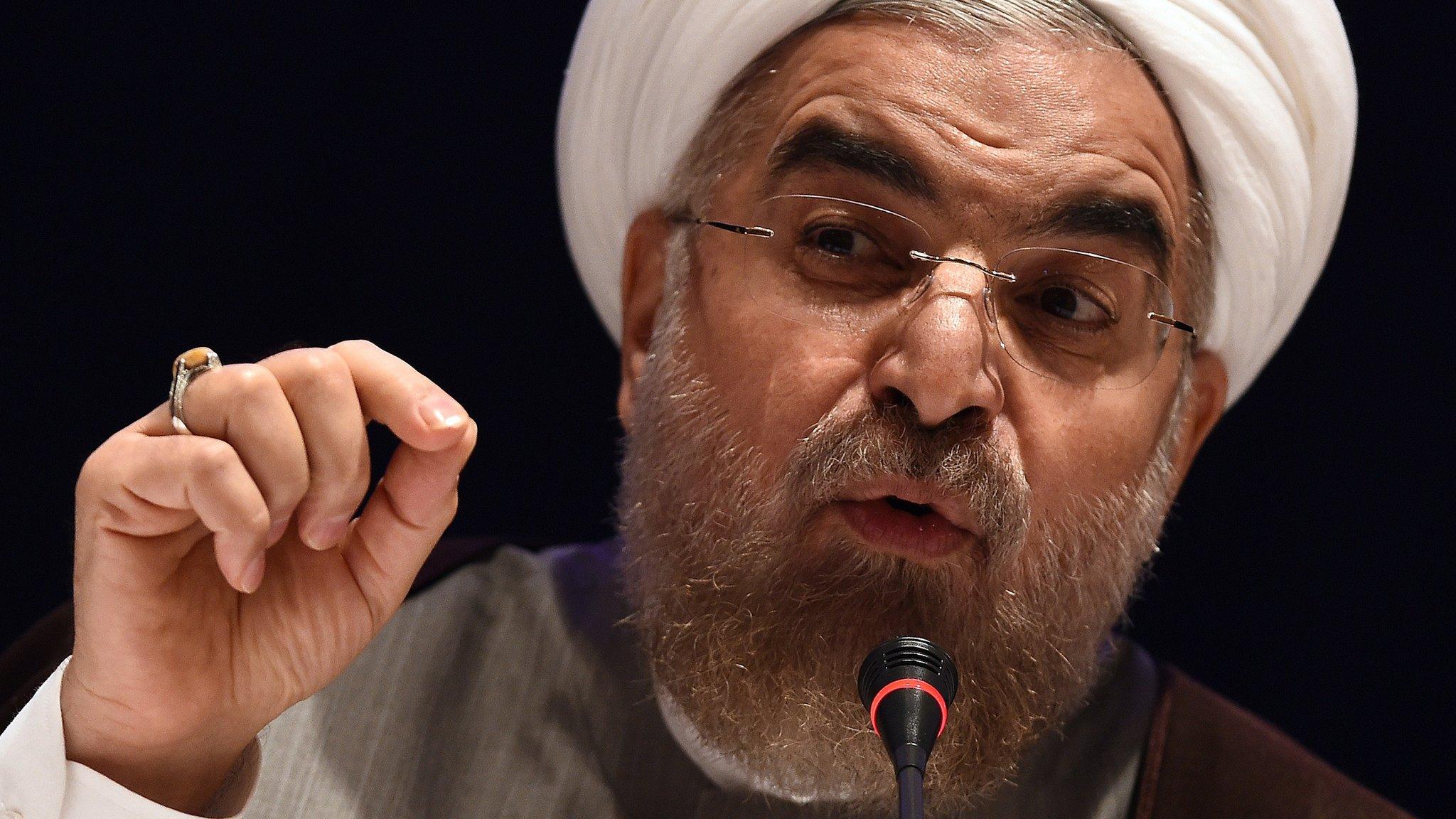Iran seeks $30bn of new oil contracts
- Published
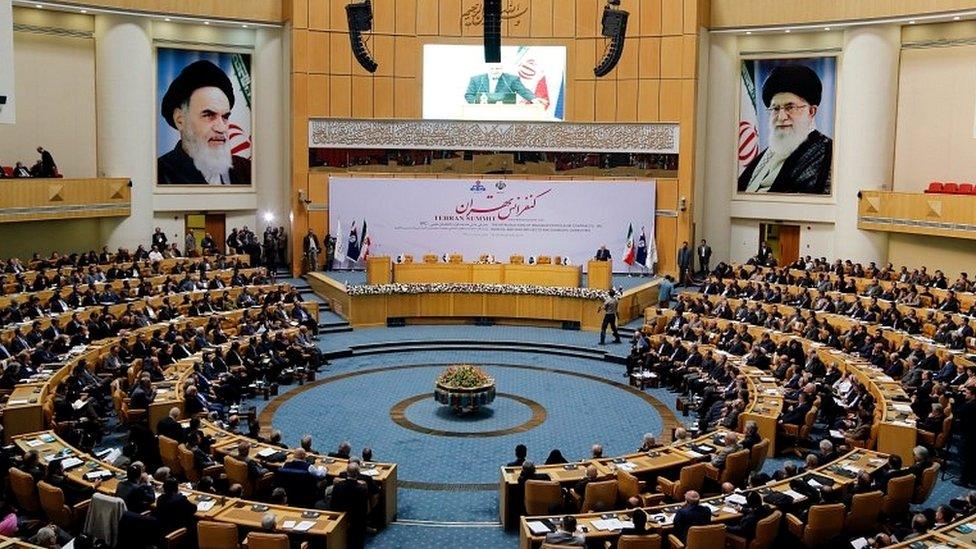
Iran has overhauled the way in which it offers contracts to foreign energy companies in a bid to attract up to $30bn of new investment.
The terms of the new oil contracts will be more favourable to foreign investors, who will be allowed a greater stake in long-term profits.
Iran is gearing up for the lifting of sanctions following the nuclear deal with six world powers in July.
The country has some of the biggest oil and gas reserves in the world.
The new contracts were announced at a conference in Tehran attended by many of the world's major energy companies, including BP, Shell, Total, Statoil and Sinopec. There were, however, no US companies present.
The energy majors are keen to exploit Iran's abundant reserves of oil.
'Not perfect'
The new contracts put an end to the so-called buyback model, which has historically deterred foreign investors, where overseas contractors developed and operated an oil field before handing it over to Iran.
Now, more lucrative longer-term contracts will be offered, where foreign companies can retain a stake in the field.
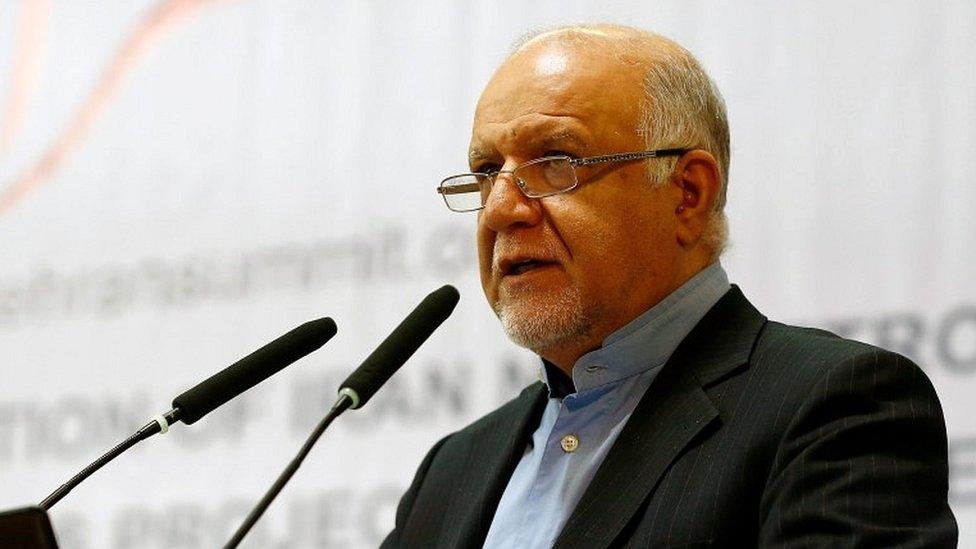
Mr Zanganeh said the new contracts would be mutually beneficial for Iran and foreign investors
About 50 oil and gas projects are expected to be unveiled during the Tehran conference, taking place on Saturday and Sunday.
"The contract models introduced today are not perfect or ideal, but an effective and responsive model for both sides," Oil Minister Bijan Namdar Zanganeh said.
"To continue to play a role [as a major oil supplier], we hope to enjoy working with reputable international oil companies under a win-win situation."
Mr Zaganeh added that Iran had "no objection to or problem with the participation of US companies".
Iran has big plans to increase oil production in the coming years, from about three million barrels a day now to five million by the end of the decade.
It has already pledged to increase output by 500,000 barrels a day once sanctions are lifted.
- Published23 November 2015
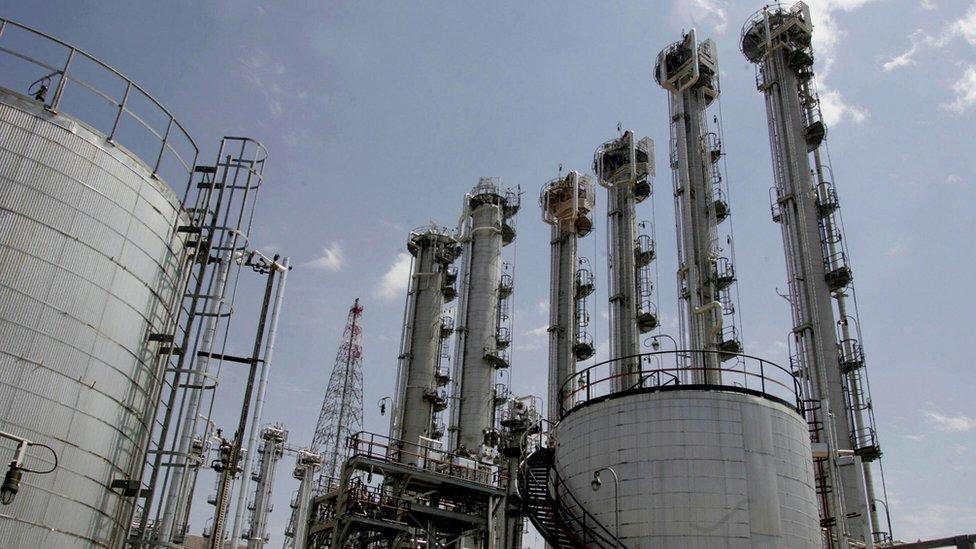
- Published20 November 2015
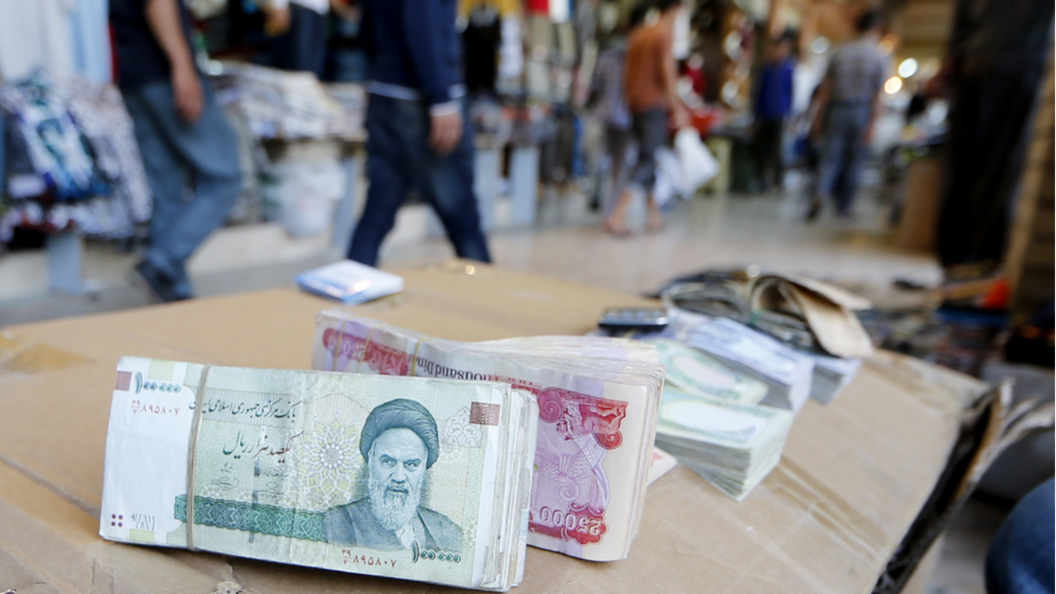
- Published5 June 2015
